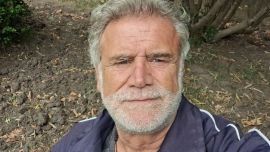A battle in the intense diplomatic war between China and Taiwan is being fought in Latin America, where Honduras has become the latest country to ditch Taipei and align itself with Beijing.
Paraguay will be the next front as it holds a presidential election in April, with opposition candidate Efrain Alegre vowing to re-evaluate relations with Taipei if he wins.
After Honduras' severing of ties with Taiwan on Sunday, only Paraguay and 12 other countries now maintain diplomatic relations with the self-ruled democratic island: Guatemala, Belize, Haiti, the Holy See, Eswatini, and seven small Caribbean and Pacific island nations.
Taiwan's president, Tsai Ing-wen, is set to visit Guatemala and Belize this week seeking to boost ties after Honduras and others recently shifted their allegiance to China: Nicaragua in 2021, El Salvador in 2018, Panama in 2017 and Costa Rica in 2007.
She will also have stopovers in New York and Los Angeles.
"We are facing a geopolitical recomposition of the world," Honduras analyst Zoyla Madrid, recently retired from the National University, told AFP – with China one of the "imperial poles" vying for Latin American support.
In that race, the decision by Honduras was a blow to Washington, said Madrid.
"The United States has always counted on Honduras geopolitically and militarily, in fact Honduras has seven US military bases," she said.
The United States has no diplomatic ties with Taiwan, but "a robust unofficial relationship," according to the State Department.
It is Taiwan's most significant ally and largest weapons supplier, despite having switched recognition to Beijing in 1979.
'Do as I say, not as I do'
China considers Taiwan part of its territory, to be retaken one day -–by force, if necessary. Under its "One China" policy, it does not allow countries to recognise both Beijing and Taipei.
After the Honduras move, US Secretary of State Antony Blinken said Washington has offered its "support to people on Taiwan" but that it also stood by the "One-China" policy.
"Countries have to make their own sovereign decisions about their foreign policies," he said. "We leave that to them."
Honduran sociologist Pablo Carias told AFP that Washington's position amounted to "Do as I say, not as I do."
"The United States is recommending that we do not establish relations with China and yet they have relations," he said.
For Paraguay's former foreign minister Eladio Loizaga, it seemed unlikely his country would switch recognition to Beijing "although it cannot be ignored that there is very great political pressure."
Added analyst Hector Cristaldo: "Looking at the numbers, there is nothing to discuss" when it comes to Paraguay's diplomatic loyalty.
"It is not the same to do business with Puerto Rico as with the United States," said Cristaldo.
Before deciding to cut ties, Taiwan claimed, Honduras had asked it for money, saying it would "not engage in a meaningless cash diplomacy contest with China."
'More openings for China'
Latin America has been crucial to the diplomatic struggle between Beijing and Taipei since they separated in 1949, after the Chinese civil war.
The communists seized power in mainland China, while the nationalists retreated to Taiwan.
Sung Wen-ti, a lecturer on Taiwan studies with the National Australian University, said Taiwan would be disappointed about losing another ally.
But it likely "assigns just as high, if not higher priority (to) strengthening relations with other leading countries around the world, countries like the US, Japan, Australia, and Europe, for example."
Sung added Taiwan has been playing an increasingly prominent role in the worsening rivalry between the United States and China.
And while the United States increasingly needs to "prioritize where it spends its strategic resources" there may be "more openings for China... in terms of economic assistance to make friends in Latin America, Africa, Pacific Islands," he said.
by Noe Leiva & Hugo Olazar, AFP



















Comments